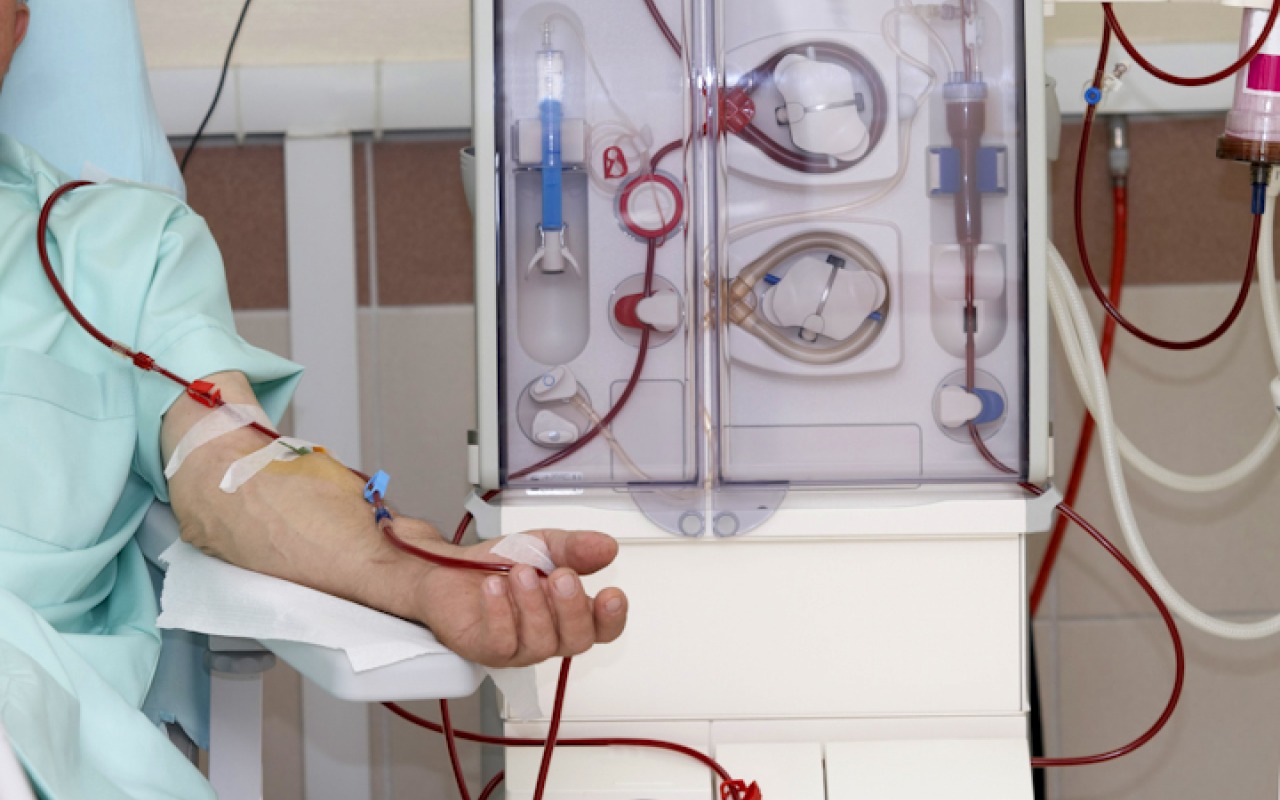
What is hemodialysis?
Hemodialysis is a treatment for kidney failure. Normally, the kidneys work to filter the blood and remove waste and excess salt and water. Kidney failure, also called “end-stage renal disease,” is when the kidneys stop working completely.
With hemodialysis, a machine takes over the job of the kidneys. Blood is pumped from the body, filtered through a dialysis machine, and then returned to the body
Where will I have hemodialysis?
Most people can choose between having hemodialysis at a dialysis center (in a hospital or clinic).
Who will pay for my dialysis sessions?
In Egypt, chronic dialysis may be paid for by the payient or sponsored eg by your insurance, the Ministry of Health etc
Home hemodialysis is not readily available in Egypt yet but is an option that may offer several benefits
How often will I have hemodialysis and how long does it take?
You will have hemodialysis for 4 hours, 1 – 3 times a week. Many patients who pass enough urine and have few symptoms may start dialysis once or twice per week. In many people, after a few months on dialysis the urine volume decreases and dialysis is required 3 times per week.
When will I start hemodialysis?
You and your doctor will decide the right time for you to start hemodialysis. It will depend partly on how well your kidneys work, your symptoms, and your overall health. Your doctor will do blood tests to check how well your kidneys are working.
Before you start hemodialysis, you need surgery to prepare your body. Your doctor will create an “access,” which is a way for the blood to leave and return to your body. There are 3 different types of access:
- AV fistula – This is the most common type of access.
- AV graft
- Central venous catheter
What happens during hemodialysis?
It depends on your access. If you have an AV fistula or AV graft, the doctor or nurse will put 2 needles into your arm, in your access. If you have a central venous catheter, he or she will connect the catheter tube to tubes from the dialysis machine.
During hemodialysis, blood leaves your body through the access. The blood travels through and is filtered by the dialysis machine. Then the blood returns to your body.
What problems can happen with hemodialysis?
People can have problems with their access. An access can get infected, get blocked, or stop working.
People can also have problems during dialysis treatments. These can include:
- Feeling lightheaded
- Trouble breathing
- Belly or muscle cramps
- Nausea or vomiting
Let your doctor or nurse know if you have any problems. Many of them can be treated.
Is there anything else I should do?
Yes. If you get dialysis on a regular basis, you will need to:
- Take care of your access – Wash your access with soap and warm water every day and before each dialysis treatment. Don’t scratch or pick at the area. Don’t let anyone use that arm to take blood or measure blood pressure.
- Check your access every day – When your access is working normally and blood is flowing through it, you can feel a vibration over the area. Let your doctor or nurse know if you don’t feel a vibration.
- Weigh yourself every day – When your kidneys don’t work, fluid collects in your body. Let your doctor or nurse know if you gain more weight than usual between dialysis treatments.
- Follow a special diet – You will need to limit the amount of fluids you eat and drink. You might also need to avoid foods with a lot of sodium, potassium, and phosphorus. These are minerals that can build up in your body if you have kidney problems.
Can I travel if I get dialysis?
Probably. If you do home dialysis, you might be able to take your machine with you. If you get dialysis in a center, you will need to find a dialysis center in the place that you want to visit.
